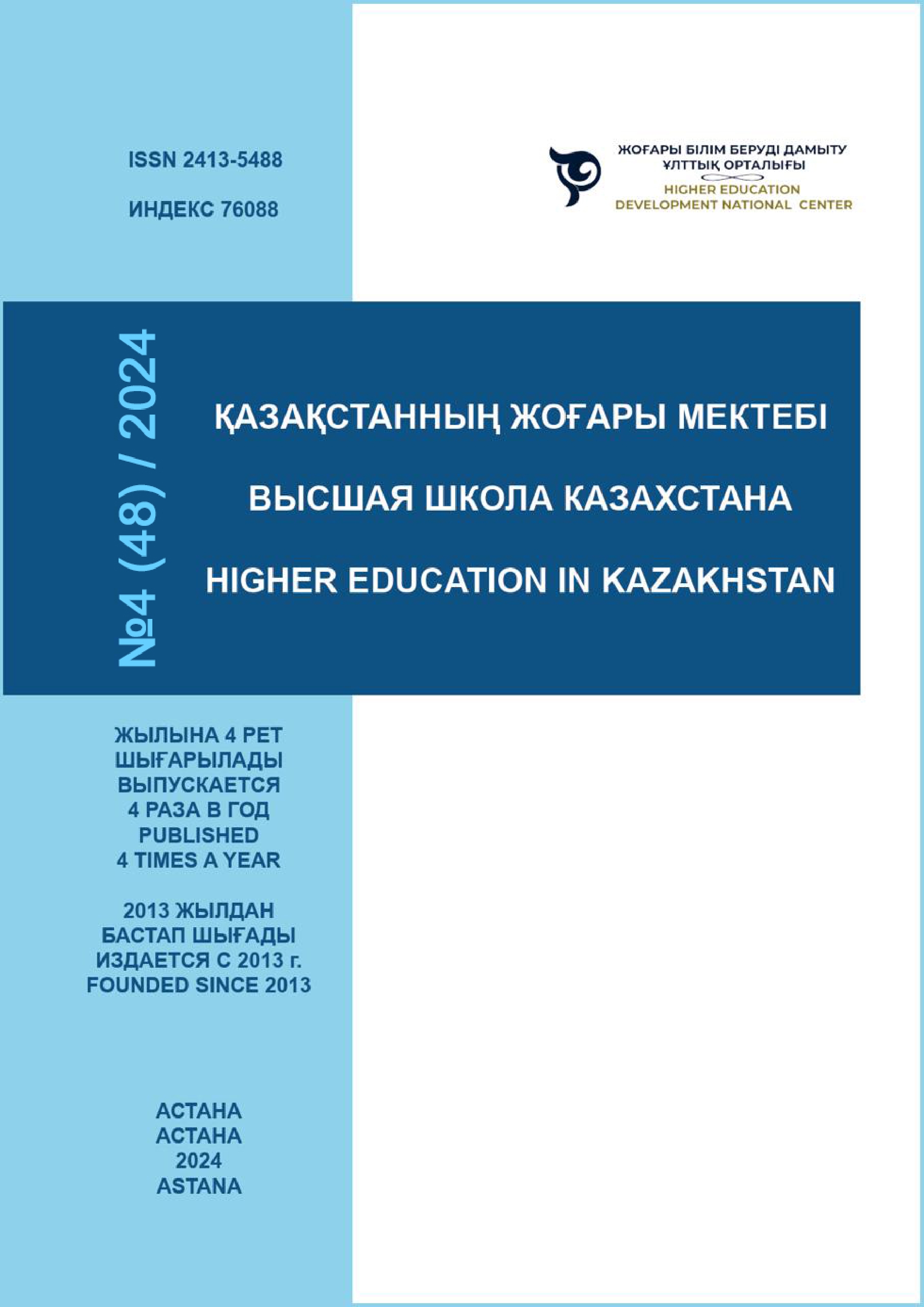THE IMPACT OF ARTIFICIAL INTELLIGENCE ON ENGLISH LANGUAGE TEACHING IN THE CONTEXT OF FORMAL AND INFORMAL HIGHER EDUCATION
DOI:
https://doi.org/10.59787/2413-5488-2024-48-4-126-134Кілт сөздер:
artificial intelligence, formal and informal higher education, the process of teaching English, questionnaire survey, data analysisАңдатпа
This article considers the impact of artificial intelligence on the process of teaching English in formal and informal higher education. The authors study the use of various artificial intelligence technologies, such as machine learning, neural networks and automated speech analysis systems, to improve the effectiveness of teaching English to students, analyze the advantages and disadvantages of using artificial intelligence in teaching English, and offer recommendations for optimizing this process. The authors presented research of the influence of artificial intelligence on the process of teaching English through a theoretical review of foreign experience and a questionnaire survey, the purpose of which was to study the opinions and views of students on the influence of artificial intelligence on the process of teaching English. The results of the research may be useful for teachers and students planning to introduce artificial intelligence into English language teaching
Әдебиеттер тізімі
Brown, H.D. (2007). Principles of Language Learning and Teaching. Pearson Education.
Chapelle, C.A. (2001). Computer applications in second language acquisition: Foundations for teaching, testing and research. Cambridge University Press.
Lee, L. (2013). Exploring language learner: Using corpus-based analysis and natural language processing. Cambridge University Press.
Li, S., & Zhao, Y. (2018). Artificial Intelligence in English Language Learning: A Review. Computer-Assisted Language Learning, 31(3), 215-244.
Reinders, H., & Wattana, S. (2014). Learn English or die: The effects of digital games on interaction and willingness to communicate in a foreign language. Digital Culture & Education, 6(3), 214-230.
Reinders, H., & White, J. (2016). 20 years of autonomy and technology: How far have we come and where to next? Language Learning & Technology, 20(2), 143-154.
Russell, S.J., & Norvig, P. (2016). Artificial Intelligence: A Modern Approach. Pearson.
Tleuzhanova, G.K., Sarzhanova, G.B., Joldanova, D.K., Eskzinova, Z.A., Assanova, D.N. (2019). The role of IT technologies in the formation of students leadership. Journal of Advanced Pharmacy Education and Research, 9(2), 89-94.
Warschauer, M., & Healey, D. (1998). Computers and language learning: An overview. Language Teaching, 31(2), 57-71.






